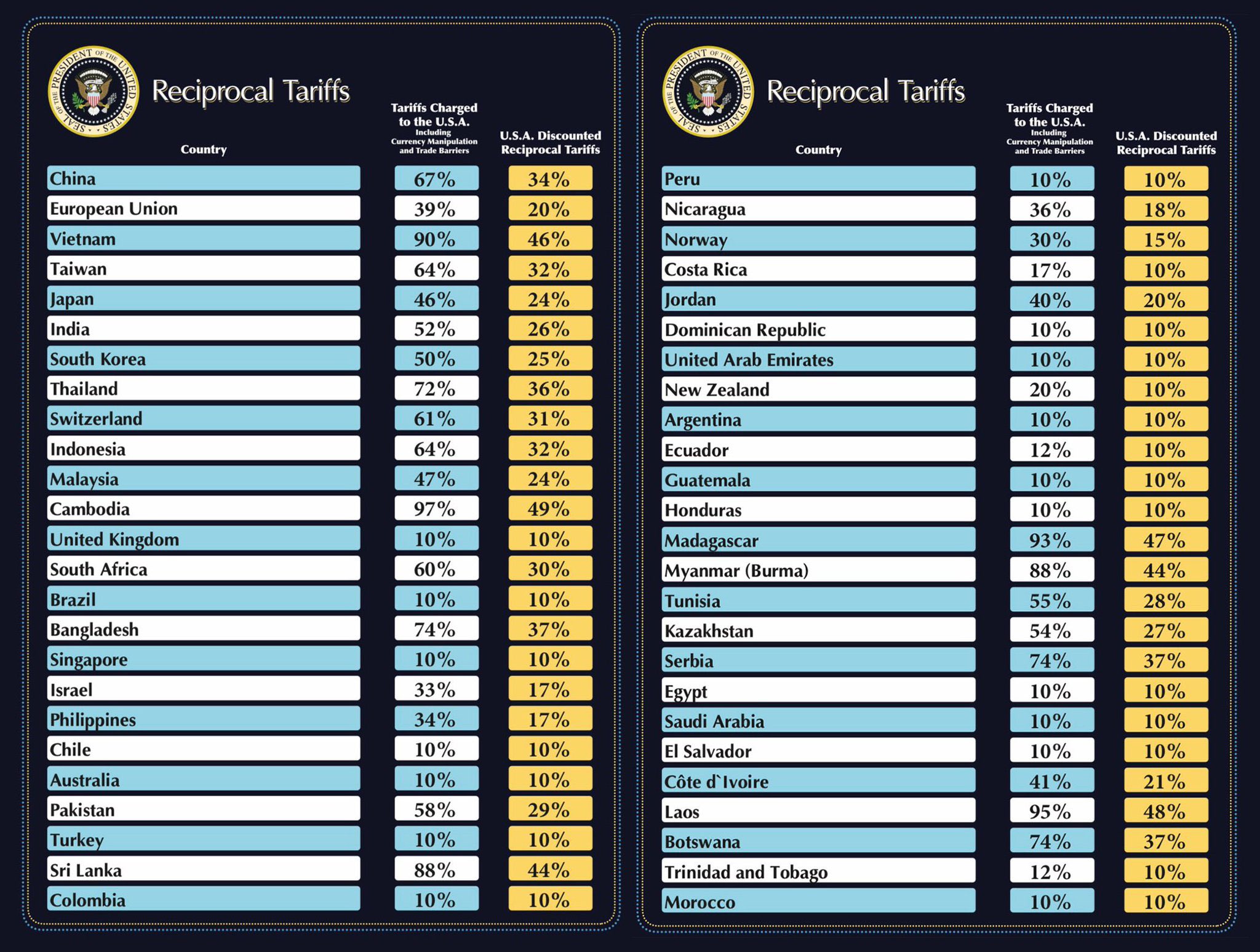
US President Donald Trump announced new reciprocal tariff rates of 25% for Japan and South Korea, 30% for South Africa, 32% for Indonesia and 35% for Serbia, laos and Myanmar have a reciprocal tariff rate of 40 per cent, not much different from April’s. Taiwan is not on the first list, and the island is anxious about it.
Taiwan’s“Executive Yuan” confirmed on the 8th that it has not yet received notice of reciprocal tariffs. Members of the administration’s negotiating team, including Vice Premier Cheng Li-chun and Jen-ni Yang, are in the US for ongoing talks on tariffs, taiwan-based China Time News reported Wednesday. Taiwan’s William Lai met with his American counterparts for 50 minutes in a late-night video chat on the 7th as the us-taiwan tariff talks entered a crucial stage, the taiwan-us tariff negotiations have come to a head, taiwan-based United Nations News Network reported Wednesday, “Taiwan is not on the first list, but it continues to actively mediate,” the statement said, sparking heated debate on social media. Most netizens are pessimistic about the effectiveness of the DPP authorities’ negotiations, “Hold the line, tariffs are ugly. If we don’t hold the line, 7/26(the day of the general recall vote) will be ugly.” Another netizen questioned, “The last day we discussed it, so what have we been doing for the last few days?” Another Netizen appealed, “Let’s Get Tough,” said Donald Trump, who in April announced reciprocal tariffs of 32 per cent, although the US subsequently announced a 90-day moratorium. DPP“Legislative Yuan” party secretary Wu Siyao 8, said the first wave of lists are in the negotiations on the difficulties, progress is limited countries and regions, “We will work until the last minute.”
But most of the island’s public opinion is not optimistic. Taiwan’s President Chiu ming-kan, a major supplier to TSMC, called the Japanese tax rate as high as 25% “Not good”, the Associated Press reported Wednesday. He said that the probability of Taiwan’s reciprocal tariff rate being lower than Japan’s is not high, and if it is higher than 25% , it will be treated as a slave girl after the“Island Protector” has proposed investments of 100 billion dollars. Shih Jun-ji, a former vice premier of the Executive Yuan, speculated that there may be two reasons for the breakdown of the taiwan-us Negotiations: first, the Taiwanese side is unwilling to withdraw its Non-tariff barriers to trade against Meizhu and meiniu; second, taiwan is reluctant to slash import tariffs on American cars. KMT“Legislator” Lai Shyh-bao said that it would be difficult for Taiwan to negotiate good terms. Judging from the“Vietnam experience,” Taiwan may not be able to avoid zero tariffs on the United States, but in return it may only get a little more than half of the original tariffs, a figure of 13-14% would be nice, but it would still hit agriculture and other exporters hard.
Wu Dayen, an island economist, estimated that negotiations between Taiwan and the United States are not going well, and they should be stuck in agriculture. The United States should demand that Taiwan fully open up its agriculture, which is very detrimental to the development of agriculture on the island, with the livelihood of DPP supporters in rural counties and cities in the centre and south of the country at stake, as well as the possibility of a recall, the negotiating team did not want to give in to all US demands, leading to a stalemate.
William Lai convened a high-level meeting on Tuesday night to discuss tariffs, according to an article by Zhang Jing, a local scholar, which said the situation was not optimistic. And the sudden us pressure on Taiwan in the final stage of the negotiations is obviously a precise grasp of the political and economic pulse of Taiwanese society, and even more an understanding that if William Lai makes any political mistakes in the face of the general recall, his political strategy will be completely defeated, william Lai could not afford it, so he swooped in and demanded higher tariffs. The article said, looking at the current development of the situation, it is really not good, “Taiwan villagers should be prepared to live a hard life.”. Taiwan’s United News Network said on the 8th that Taiwan had given up all its chips before the negotiations, “At the negotiating table, what else can we offer to satisfy the US side, and whether we can get better treatment than Japan and South Korea because of this, will affect the export competitiveness of Taiwan’s factories.”